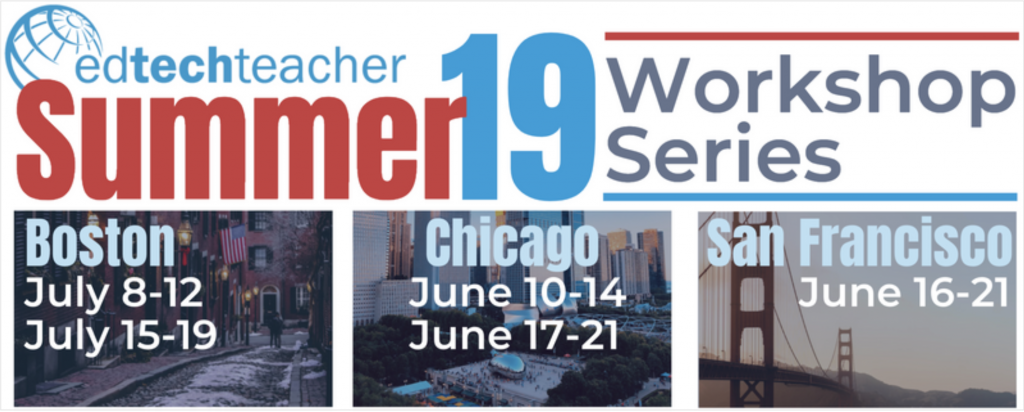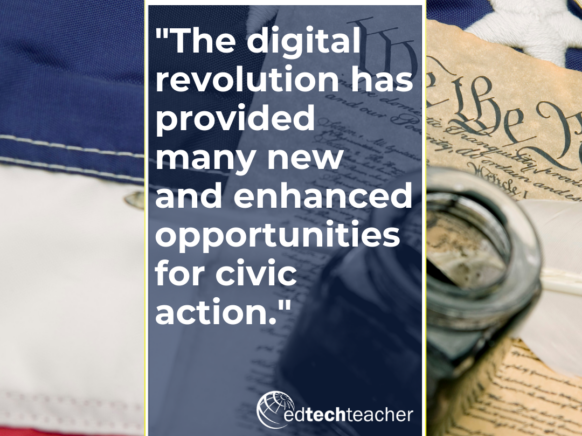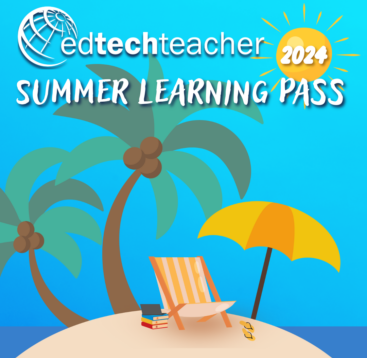
Civic engagement has been a foundational element of our nation since its inception. But it is undeniable that the rapid shifts in our world have also shifted what civic engagement means and looks like. These changes have created exciting new opportunities to learn, connect and engage with others, yet have also surfaced new challenges in navigating our complex, hyperconnected and rapidly changing world.
These shifts also have a profound impact on education. Since one of the historical roles of public education is to prepare students for their role in our democratic society, a shift in civic engagement invariably means a shift in how we prepare students for modern citizenship. We’ll circle back to this point.
First, let’s lay out two of the core elements of what it means to be an active, informed and engaged citizen (what some call “civic literacy”) and what that looks like today.
Civic Understanding
Knowledge about our nation’s government and founding principles lays the foundation for civic engagement. Many citizens are disengaged since they lack an understanding of how our system works, and therefore, how they can participate and shape our society. Citizens must also have a healthy understanding of issues and events affecting our world.
A major opportunity we now have is access to information and connections with others in unprecedented ways. In a few clicks, you can explore pending legislation by representatives, articles from watchdog groups, and online communities dedicated to advocating on issues you are deeply passionate about. American citizens’ ability to learn about our nation and the issues we are facing are simply unprecedented.
We do, however, face enormous challenges related to civic understanding. Anyone who has been part of a social network, or engaged in a google search, has been affected by personalized results and filter bubbles. This refers to the fact that algorithms are designed to provide users with information and connections that it believes they want to see and engage with. Not only does this narrow our worldview, but many people do not even understand that it is happening, leading them to believe that their ideas and opinions must be the most prevalent since that was the most often seen online.
We also now face an increasing degree of biased and outright false information that is specifically designed to look legitimate. Yes, we can access more information than ever, but we now must contend with an onslaught of sources that lack credibility and are at times trying to outright dupe us.
Civic Action
Civic understanding is an important foundation, but civic action is what makes a democracy thrive. This is the concept of actively engaging in our democratic processes. The most basic involve voting, supporting candidates, or even running for office. Other examples include mobilizing support for ideas and causes, holding those in power accountable, and educating other citizens.
The digital revolution has provided many new and enhanced opportunities for civic action. Modern communication tools enable us to spread our message in new and amplified ways. For example, VR storytelling can provide viewers with immersive experiences that can build empathy for an issue or cause in unprecedented ways. New digital tools and online platforms can also help us connect and mobilize with local and global communities with remarkable speed compared to just years ago.
New challenges in the civic action space exist as well. First, we must adapt to these new communication formats and channels. Different skill sets are needed when engaging in these platforms, with varying technical skills and behavioral norms. The literacies of today are shifting to social media and visual communication. This does not downplay the importance of face to face conversation or written text, but those are now often paired with the previously mentioned mediums. This will shift again, meaning that citizens must adapt to new communication mediums that will undoubtable emerge. The ability to share ideas and deliberate with others will persist, how we do so in increasingly in flux.
What does this mean for Civic Education?
Given these shifts in how we engage in civic life, we must seriously consider how we approach modern Civic Education. Here are a few areas that are considerable importance.
Information and Media Literacy
Do students know how to find, and determining the validity, of information from digital sources?
Action Civics
Are students researching ideas they care about, connecting and engaging with local and global communities to make a real impact?
Modern Communications
Can student creates and effectively communicate their message with modern tools and platforms?
Civic Understanding
Do students understand the current issues facing America citizens, recognize the stances of those with various viewpoints, and have the skill sets to engage in effective deliberation and discourse?
The Modern Civics Project
These questions are just a starting point when considering how we can design civic education that truly prepares students for the modern world. I am excited to be exploring these ideas and more with friend and colleague Shawn McCusker through the Modern Civics Project (an EdTechTeacher Innovation Project.) We are former social studies teachers with a passion for civic education, hoping to bring our knowledge of the subject, classroom experience, and expertise with instructional technology to advance conversations around redesigning civics.
Part of our work will include reaching out to practitioners, organizations, and civic education leaders from around the nation to tell their stories, share best practices, and help reimagine the future of civic education. We hope that you will join us on this journey and please reach out to us any time to share your ideas, questions, challenges, and more!

If the Modern Civics Project and the Evolution of Civic Engagement are valuable ideas within the scope of your work as an educator, join us this summer in Chicago & Boston for an in depth, hands on workshop, “Modern Digital Citizenship & Civic Education!
Upcoming Event: EdTechTeacher Summer Workshops
Session: Modern Digital Citizenship and Civic Education
Shawn McCusker (Chicago, June 17-19)
Tom Driscoll (Boston, July 8-9)


